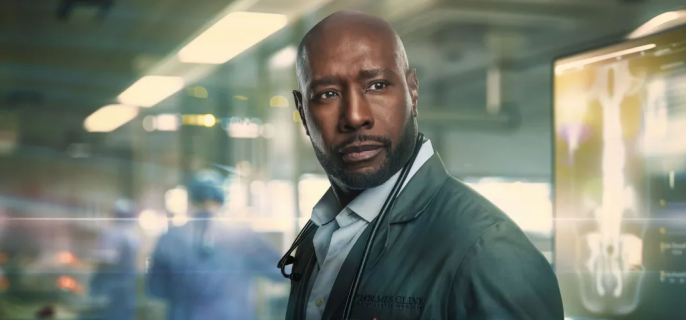I'll be the first to admit that Watson doesn't require Sherlock Holmes to function. In fact, he works better without him. However, Season 2 is resolute in weaving Sherlock into the narrative, so we're stuck with it. The arc I appreciate in Episode 5, "Lucky," is Watson's gradual realization that he might not need his friend and mentor as much as he always thought—and by extension, perhaps the show doesn't need him either.

It's a peculiar arc, I'll grant you that. It cynically introduces Sherlock for the sake of it and then takes several episodes to clarify that he wasn't necessary in the first place. This episode also introduces another Holmes connection that feels like a replacement villain, but we'll get to that later. It's a tricky predicament for the show, as it's built and marketed around a connection to Sherlock Holmes but doesn't benefit from leveraging it in any meaningful way.
"Lucky," named after the patient of the week—a man with locked-in syndrome mistakenly diagnosed as being in a vegetative coma, who may or may not have witnessed several murders committed by a crazy nurse—deploys a similar gimmick to Sherlock's previous appearance. Sherlock lurks around Watson's apartment and baits him into oversharing details so he can offer outside-the-box solutions. It works on a general level, but it mostly makes me think how annoying it must be to have Sherlock Holmes as a friend. You come home after a long day, and he's trying to bait you into a fencing match? Not for me.
Again, though, the point of "Lucky"—or so it seems—is to have Watson gradually realize that Sherlock's solutions to problems are sometimes more overblown than the problems themselves, and that Watson's carefully cultivated way of doing things has explicitly evolved beyond Sherlock's wacky "I'm a genius so it'll all work out" approach. I hope—whispering this softly—that Watson is realizing this will mean less Sherlock in the future. I like Robert Carlyle in the role, but the show is better without him, and there's only so much I can tolerate of Watson acting like toad in the hole is some kind of esoteric bushman meal.
Indeed, the fifth episode of Season 2 of Watson excels in the intricate character interactions, which is a pleasant surprise considering it's an area where it often stumbles the most. We get a delightful playfulness in the relationship between Sasha and Stephens, which has been barely touched upon since its introduction in the premiere. While it may seem largely meaningless, I appreciate its presence nonetheless because the show has a tendency to introduce character subplots without warning and expect us to care. These two are starting to feel like a couple, not just because of their physical chemistry but because we're actually seeing them support each other through difficult personal moments. It's small stuff, but it's the kind of small stuff that Watson often overlooks, so it's worth mentioning when it's here.
I certainly prefer this romantic context to Watson's will-they-won't-they dynamic with Mary. While the lack of such tension might feel like a blessing, the absence of Laila reinforces the idea that the show simply hides problems it doesn't know how to address.
As for Ingrid, I'm less certain, but I suspect that her interactions with the guy in her therapy class, coupled with the ground she's making in her personal relationships, especially with the Crofts and Sasha, suggest we're heading towards a personal test in her journey of self-discovery. She will either revert to her minor villain mode or showcase her evolution by refusing to be swayed. And it's almost certain to be the latter, as those relationships she's working on and the awkward, unsure attempts she's making at being a more open, understanding person are likely to pay off down the line when she encounters a problem she needs support to deal with. It's fairly standard storytelling, but my confidence in it playing out in this precise way suggests it's too predictable. However, given Watson's typically poor execution of this kind of thing, it's a novelty that there's any kind of consistency whatsoever.
And then there's Mycroft Holmes, Sherlock's notoriously unscrupulous brother, who it turns out technically owns Watson's clinic due to Sherlock being dead (which he isn't, obviously, but Watson hasn't mentioned this to anyone yet). I'm sure this will be an issue as we go on, but if we look on the bright side, Mycroft as a character does suit this show a little better than Sherlock does. But only time will tell in that regard.

